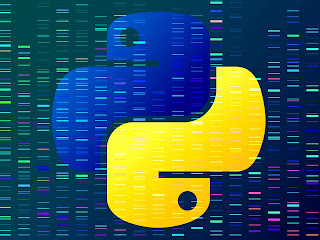PYTHON FOR ALL
Introduction to Python
Python is a versatile and powerful programming language that has gained immense popularity among developers and companies worldwide. Whether you are a beginner looking to dive into the world of programming or an experienced developer seeking to add another language to your toolkit, Python offers a wealth of features and benefits that make it an excellent choice.
Overview of Python as a Programming Language
Python is an interpreted, high-level, general-purpose programming language known for its simplicity and readability. It was created by Guido van Rossum and first released in 1991. Python's design philosophy emphasizes code readability and simplicity, making it an ideal language for beginners and experienced developers alike. The language's syntax is clear and concise, allowing developers to express complex ideas in fewer lines of code compared to many other programming languages.
History and Development of Python
Python's journey began in the late 1980s when Guido van Rossum started working on a new language to address some of the shortcomings he observed in existing languages. Python 1.0 was officially released in 1994, and since then, the language has evolved significantly.
- Python 2.x: Introduced in 2000, Python 2.x brought many improvements and new features. It remained widely used for many years, even after the introduction of Python 3.x.
- Python 3.x: Launched in 2008, Python 3.x was a major overhaul of the language, designed to fix inconsistencies and improve overall performance. While it was not backward-compatible with Python 2.x, it introduced many enhancements that have made it the preferred choice for new projects.
Key Features and Benefits
Python's popularity is not just a result of its simplicity but also due to its rich feature set and versatility. Here are some key features and benefits of Python:
- Easy to Learn and Use: Python's straightforward syntax and readability make it an excellent language for beginners. It allows developers to focus on solving problems rather than struggling with complex syntax.
- Extensive Standard Library: Python comes with a vast standard library that provides modules and functions for various tasks, such as file I/O, system operations, web development, and more.
- Interpreted and Dynamically-Typed: Python is an interpreted language, meaning that code is executed line by line, which makes debugging easier. Its dynamic typing system allows developers to write flexible and adaptable code.
- Support for Multiple Paradigms: Python supports procedural, object-oriented, and functional programming paradigms, allowing developers to choose the best approach for their projects.
- Cross-Platform Compatibility: Python runs on various operating systems, including Windows, macOS, and Linux, making it a versatile choice for cross-platform development.
Why Learn Python?
Python's versatility extends beyond its syntax and features. It is used in a wide range of applications and industries, making it a valuable skill for any developer. Here are some reasons why learning Python is a smart choice:
- High Demand in the Industry: Python consistently ranks as one of the most popular programming languages in the world. It is used by top companies like Google, NASA, Spotify, and many others, ensuring plenty of job opportunities for Python developers.
- Wide Range of Applications: Python is used in web development (Django, Flask), data science and machine learning (Pandas, NumPy, Scikit-learn, TensorFlow), automation, scripting, software development, and even game development.
- Community Support and Resources: Python has a large and active community of developers who contribute to its extensive ecosystem of libraries and frameworks. There are abundant resources available, including tutorials, documentation, and forums, making it easier to learn and solve problems.
Conclusion
Python's combination of simplicity, versatility, and powerful features makes it an excellent choice for both beginners and experienced developers. Its wide range of applications and strong community support ensure that learning Python is not only a valuable skill but also an enjoyable and rewarding experience. Whether you are looking to develop web applications, delve into data science, or automate tasks, Python provides the tools and resources to help you succeed.

Comments
Post a Comment